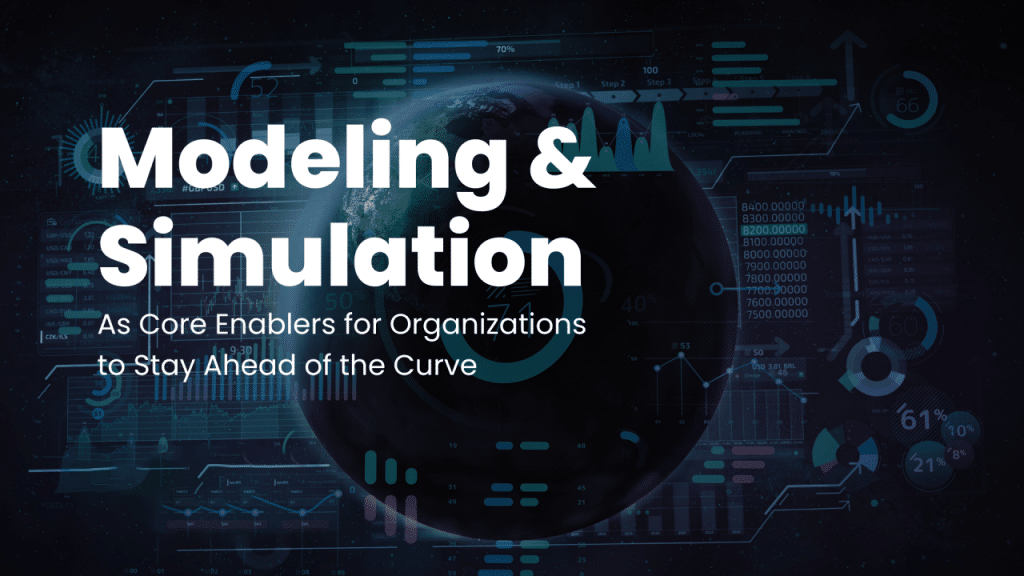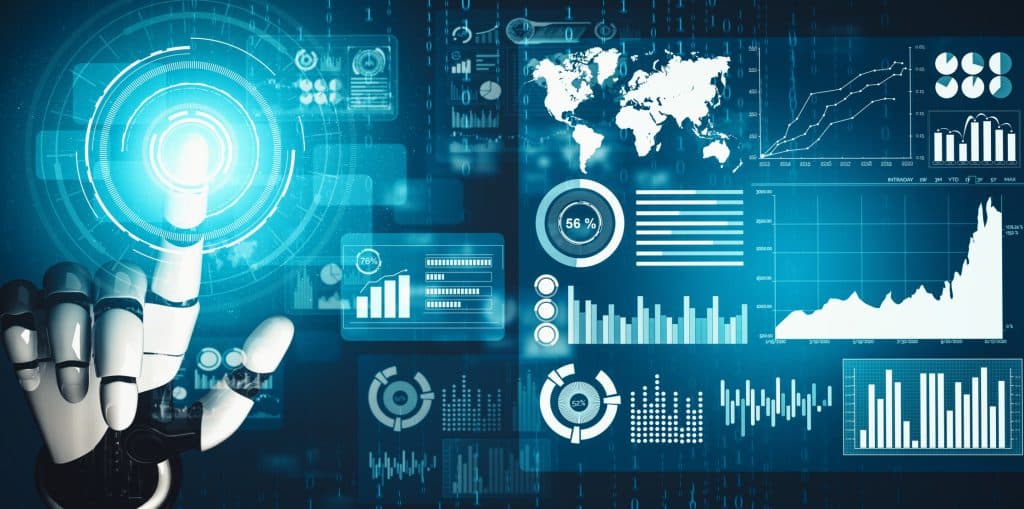Decision Intelligence: Modeling and Simulation

In today’s dynamic environment, organizations – whether government or commercial – must prepare and plan ahead for a high level of uncertainty. Having access to an abundance of data and advanced analytics about the present situation are not enough. Organizations must have access to the most relevant data for their decisions, and rely on advanced analytics to make better-informed decisions about different future scenarios.
By doing this, organizations can stay ahead of the curve, developing in advance the relevant capabilities and conceptual frameworks which will enable them to absorb shocks and recover quickly.
In other words, this is the way for organizations to enhance their resilience, a critical capability recently discussed by the World Economic Forum
This is where Decision Intelligence (DI) comes in. This emerging discipline, which has evolved in the last decade, is the convergence of decision sciences and data science. The demand for DI is rising, especially considering the ongoing improvement in AI on the one hand, and the increasing organizational complexities on the other hand. Powered by AI, Decision Intelligence enables experimenting with different scenarios in a synthetic environment. By providing recommendations for action, DI improves the organization’s ability to create a better linkage between action and outcome.

Simulation and modeling, especially when powered by AI, stand at the core of Decision Intelligence.
Simulation and modeling allow the organization to apply critical thinking, stress-test different scenarios, and reveal not only new solutions but also new problems
They highlight gaps between ‘as is’ and ‘as needed’ capabilities, and provide personalized recommendations for bridging these gaps. And when augmented by Machine Learning, modeling and simulations can help organizations improve decision-making processes themselves.
In the realm of defense, for instance, Western militaries must improve their readiness to confront crises in the context of Great Power Competition with Russia and China, and to intervene in regional conflicts such as those unfolding in the Middle East. Militaries must be ready to deploy ISR assets for improved early warning when a crisis emerges; use special operation forces and other unique assets to deter and prevent escalation; and if deterrence fails, militaries must deploy and employ forces in all domains to actively intervene in an emerging conflict. Decision Intelligence relying on modeling and simulation, as part of war-gaming and scenario planning based on military doctrine, can improve military readiness – in the fields of logistics, training, HR, and even operational planning.

In the realm of manufacturing and retail, as another example, organizations must confront disruptions in supply chains. They must maintain a high level of operations and service in the case of geopolitical crises, such as those limiting freedom of navigation or affecting maritime insurance; in cases of environmental shocks, such as those emanating from natural disasters or climate change; in cases of financial disruptions, such as those influencing the costs of transportation; and even in cases of cyber and security crises.
Decision Intelligence relying on modeling and simulation, as part of business war-gaming and scenario planning, can improve organizational resilience – in the fields of logistics, HR, finance, and management more broadly.
Decision Intelligence enables better-informed decision-making
It does not replace the human, but supports or augments the human’s decisions. In the current uncertain environment, managers and commanding officers must make decisions about the way they make decisions. Decision Intelligence provides them with a foundation for such process. It enables them to stay ahead of the curve.

